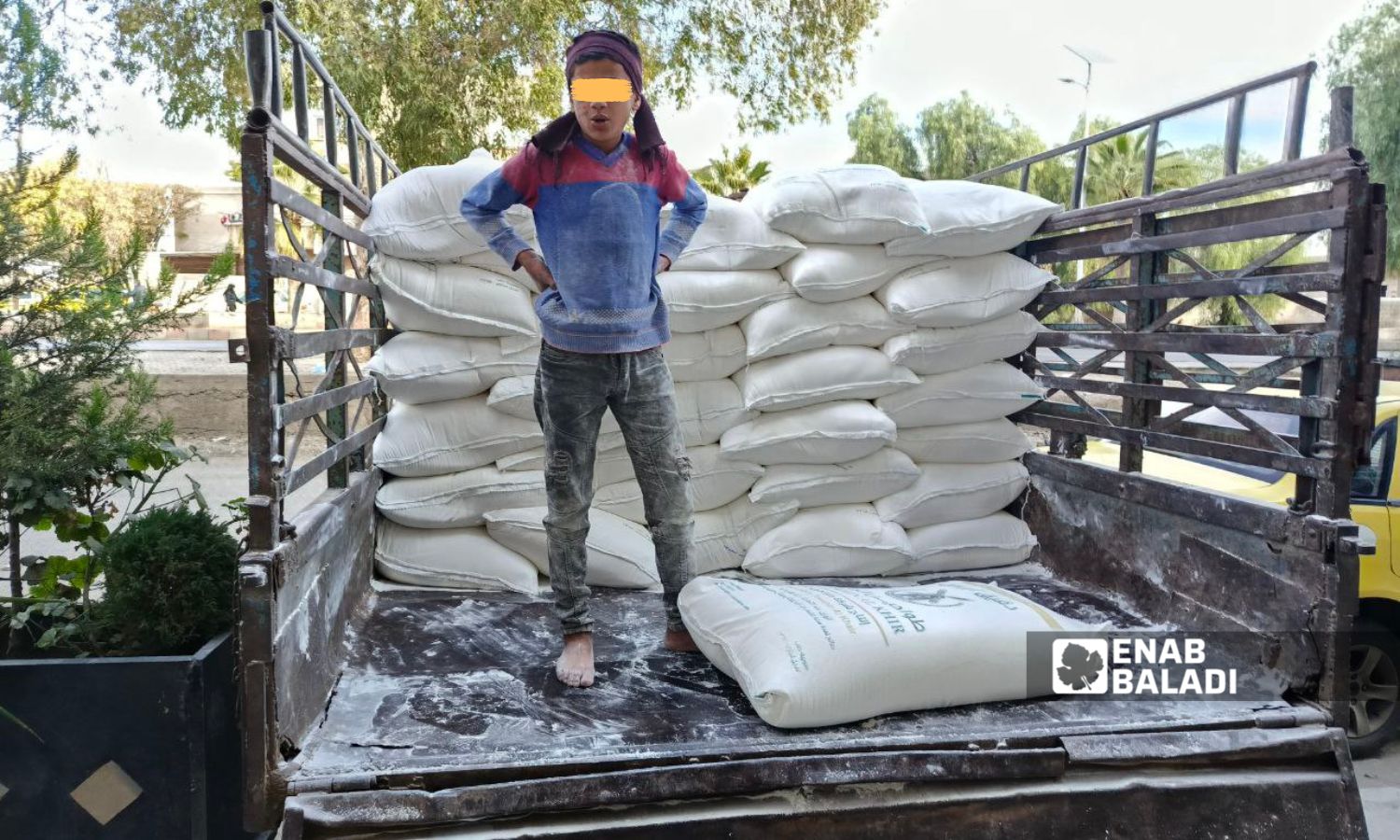



Daraa – Halim Muhammad
The bakeries were not affected by the military escalation that occurred last week in Daraa province in southern Syria, after being taken out of the control of the Syrian regime.
The bakeries continued their work in producing and distributing bread, amidst calls from the local community and factions to maintain public institutions and ensure the operation of bakeries.
After the fall of the Syrian regime on December 8, the Ministry of Internal Trade and Consumer Protection raised the price of a bundle of bread (12 loaves weighing one and a half kilograms) to 4,000 Syrian pounds, after it was 1,000 Syrian pounds for 14 loaves (weighing two kilograms).
The Director of Internal Trade and Consumer Protection in Daraa, Adel al-Syasaana, said to Enab Baladi that the province did not stop providing bread in its usual manner, based on the allocations set by the Takamul company through the smart card system.
Based on a circular from the Ministry of Trade and Consumer Protection, the work of delivering bread via the smart card has been halted, and sales through agents have been canceled, based on instructions received from the Ministry of Trade and Consumer Protection in Damascus.
Al-Syasaana added that the Directorate of Supply benefited from the reserve stock in the province, noting that the directorate provided approximately 30% of the daily consumption, due to the residents’ economy in purchasing after the decision to raise the price of bread.
He pointed out that residents used to benefit from the surplus bread by drying it and allocating it as animal feed. However, with the increase in bread prices, this surplus no longer generates financial returns for the families, as the price of a kilogram of animal feed does not exceed 5,000 Syrian pounds.
The number of bakeries in Daraa province is 126, including 18 reserve bakeries, according to al-Syasaana, who stated that quantities of flour arrived in Daraa province after the current caretaker government took over on December 12.
Regarding the entry of flour from Jordan, he said that the directorate had not received any quantities from Jordan yet, and if Jordan sends any quantities, they will be transferred to the mills’ warehouses in Daraa.
The bakeries have canceled the use of the smart card, and a new mechanism is expected to be adopted. Khaled al-Sabah, a bread agent in the countryside of Daraa, stated that the bakeries requested municipal councils to prepare new lists based on the number of individuals in the family card after canceling the work with the smart card.
He added that local councils began collecting family cards to prepare new lists based on the number of individuals.
According to Khaled al-Nader, a bakery owner in the town of Jalin, the work with the smart card has stopped, but the bakeries still rely on the quantities allocated for each individual and distribute them based on previous allocations, without using the card on the electronic device.
The increase in bread prices and the anticipated new mechanism come amid a decline in the purchasing power of the residents and fluctuations in the exchange rate of the Syrian pound against the dollar.
The majority of the residents in the countryside of Daraa work in agricultural jobs for a wage of around 40,000 Syrian pounds (approximately three dollars), while some skilled professions’ wages can reach 100,000 Syrian pounds (7.6 dollars).
On December 11, a convoy of Jordanian aid entered through the Nassib crossing and arrived in Damascus, marking the first country to provide aid to Syria after the overthrow of Bashar al-Assad’s regime.
The current caretaker Prime Minister, Mohammed al-Bashir, promised to secure basic services for citizens as one of the main objectives of the interim phase, which will last until March 2025.
if you think the article contain wrong information or you have additional details Send Correction